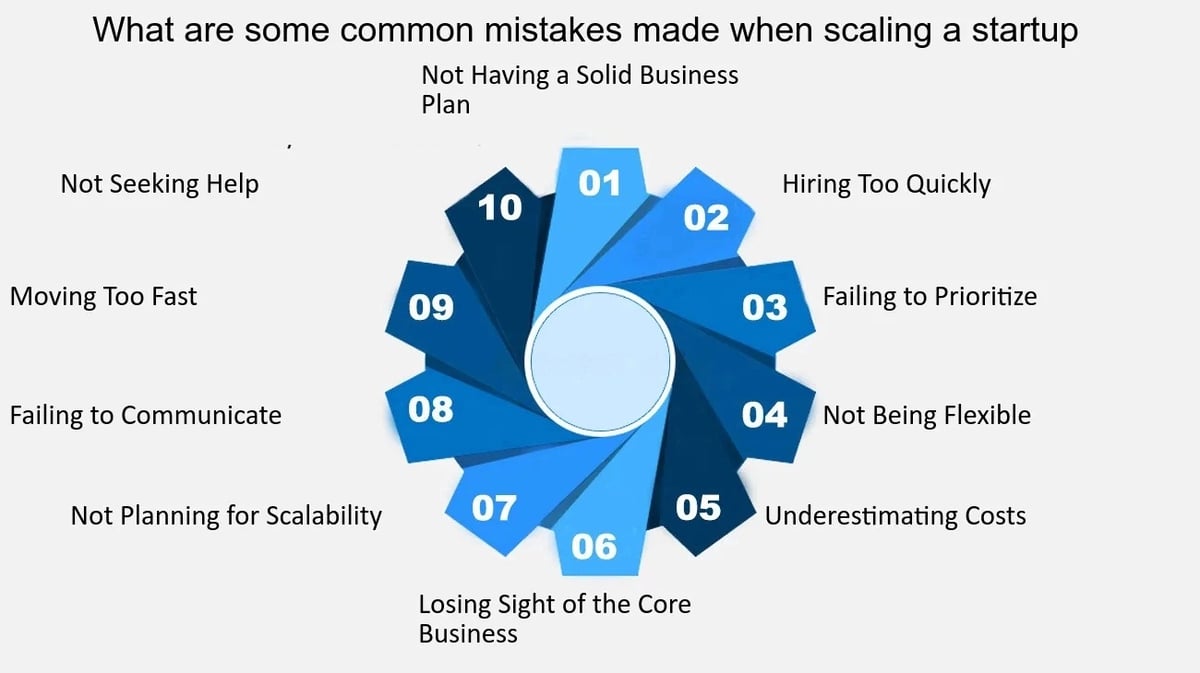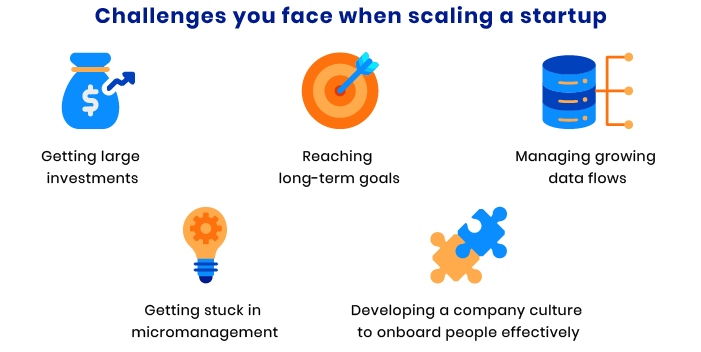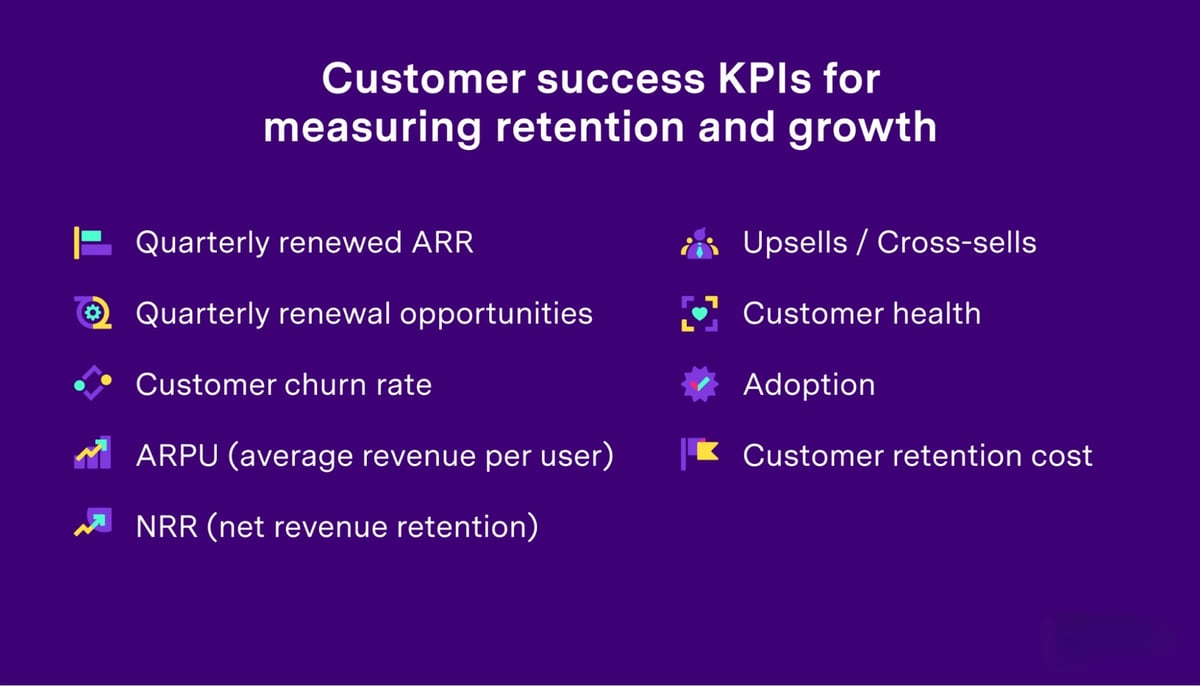Scaling a startup can be an exciting and challenging endeavor. As a scale-up or startup, you are constantly looking for strategies to achieve success and maximize your revenue and profits. In today's rapidly evolving technology industry, it is crucial to have a well-defined process and a solid RevOps (Revenue Operations) strategy in place. In this blog post, we will discuss some effective strategies that can help you scale your startup successfully.
What strategies can be used to scale a startup?
Scaling a startup can be both exciting and challenging. To successfully scale your startup, it is important to implement effective strategies that promote growth, sustainability, and profitability. The first strategy is to establish a solid foundation. Before attempting to scale, make sure your startup has a strong market fit, product-market fit, and a compelling value proposition. Validate your business model and refine your products or services to meet the demands of your target market.
The second strategy is to develop a scalable business model. Create a model that can easily adapt and accommodate growth. Implement systems, processes, and technologies that can handle increased demand efficiently.
Seeking strategic investment is another important strategy. Look for investments from venture capitalists, angel investors, or other funding sources to fuel your growth. This capital will allow you to expand your operations, hire talent, develop new products, and enter new markets.
Focusing on revenue generation is a crucial strategy. Develop a growth strategy that focuses on acquiring new customers, increasing customer retention and lifetime value, and optimizing your pricing and monetization models. Implement effective sales and marketing strategies to drive revenue growth.
Building a high-performance team is also essential. As you scale, hire talented individuals who can contribute to your startup's growth. Invest in recruitment, training, and development programs to build a high-performance team. Foster a culture of innovation, creativity, and collaboration to drive success.

What are the most common mistakes startups make when scaling?
When scaling a startup, there are several common mistakes that entrepreneurs often make. One of the biggest mistakes is not having a well-defined and scalable business model in place. Without a solid foundation, it becomes difficult to handle the increased demand and growth that comes with scaling. It's important to ensure that your business model can adapt and accommodate growth, with efficient systems, processes, and technologies in place.
Another common mistake is failing to seek strategic investment. Many startups struggle to secure the necessary funding to fuel their growth. It's important to actively seek investments from venture capitalists, angel investors, or other funding sources that align with your goals and vision. Strategic investment can provide the capital needed to expand operations, hire talent, develop new products, and enter new markets.
Focusing solely on revenue generation at the expense of other important factors is also a mistake. While revenue growth is essential, startups should also prioritize customer acquisition, retention, and lifetime value. It's important to have a comprehensive growth strategy that considers all aspects of the business, including pricing and monetization models. By optimizing these areas, startups can maximize their revenue potential.
A lack of emphasis on building a high-performance team is another common mistake. As a startup scales, it's crucial to hire talented individuals who can contribute to its growth. Investing in recruitment, training, and development programs can help build a team that is aligned with the startup's goals and values. Fostering a culture of innovation, creativity, and collaboration also plays a key rolein building a high-performance team.
Not diversifying revenue streams is another mistake that startups often make. Relying heavily on one source of revenue can be risky, as it leaves the startup vulnerable to market fluctuations and changes. By diversifying revenue streams and exploring different monetization models, startups can mitigate risks and ensure a more stable and sustainable growth.
Lack of focus on operational efficiency and scalability is also a common mistake. Startups need to invest in technology, systems, and processes that can support their growth and handle increased demand. Scaling without the necessary infrastructure in place can lead to inefficiencies, poor customer experience, and ultimately hinder the startup's long-term success.
Lastly, failing to prioritize innovation and adaptability can limit a startup's growth potential. The technology industry is constantly evolving, and startups need to stay ahead of the curve by embracing innovation and being open to new ideas. By fostering a culture of innovation and encouraging creative thinking, startups can position themselves for long-term success.

How can a startup ensure that its growth is sustainable?
To ensure that a startup's growth is sustainable, it is crucial to take several key factors into consideration. One important aspect is to maintain a focus on long-term profitability rather than short-term gains. This means making strategic decisions that prioritize sustainable growth over quick wins. It is also essential to diversify revenue streams and not rely too heavily on a single product or service. By offering a range of products or services, a startup can minimize the risk of being heavily impacted by changes in market demand or disruptions in the industry.
Additionally, investing in technology and innovation is vital for sustainable growth. By staying up to date with the latest technological advancements and continuously innovating, a startup can remain competitive and adapt to changing customer preferences and market trends. This might involve investing in research and development, implementing new technologies, or exploring partnerships or collaborations with other industry players.
Furthermore, building strong relationships with customers is another key element. By prioritizing customer satisfaction and loyalty, a startup can foster long-term relationships that lead to repeat business and positive word-of-mouth referrals. This involves providing excellent customer service, personalized experiences, and consistently delivering value to customers.
Another crucial aspect of sustainable growth is keeping a close eye on financial management. This includes closely monitoring cash flow, managing expenses, and making informed financial decisions. By maintaining a healthy financial position, a startup can weather economic downturns or unexpected challenges more effectively.
What challenges can a startup face when attempting to scale?
When attempting to scale, startups can face several challenges that can hinder their growth and success. One common challenge is the lack of sufficient resources, both in terms of finances and manpower. Scaling requires investment in infrastructure, technology, and talent, which can strain a startup's limited resources. Additionally, startups often face difficulties in attracting and retaining skilled employees who can contribute to the scaling process. Recruiting and training new staff members can be time-consuming and challenging, especially in highly competitive industries.
Another challenge that startups face when scaling is maintaining operational efficiency and effectiveness. As a startup grows, its processes and systems need to be adapted and optimized to accommodate the increased demand and complexity. This can be challenging, as startups often rely on manual or ad-hoc processes that may not scale well. Implementing scalable systems and processes, such as customer relationship management (CRM) software or project management tools, can help streamline operations and support the scaling process.
Furthermore, startups may encounter challenges in managing their finances and ensuring sustainable revenue growth. Scaling requires additional investment and may lead to increased expenses, which can put a strain on cash flow. Startups need to carefully manage their financial resources and make informed decisions regarding pricing, funding, and revenue generation. It is also crucial for startups to diversify their revenue streams and not rely too heavily on a single product or service, as this can pose a risk if market demand shifts or disruptions occur in the industry.
Lastly, startups may face challenges related to market competition and differentiation. As a startup scales, it enters a more competitive market where it needs to differentiate itself from competitors. Startups need to continuously innovate and come up with unique products, features, or services to stand out from the crowd. This requires a strong focus on research and development, as well as a deep understanding of market trends and customer needs. Startups should also invest in marketing and branding efforts to build a strong presence and attract customers in a crowded marketplace.

How can startups leverage technology to aid in the scaling process?
Startups can leverage technology in various ways to aid in the scaling process. Firstly, implementing scalable systems and processes, such as CRM software or project management tools, can streamline operations and support growth. These technologies can automate and streamline manual or ad-hoc processes, improving efficiency and effectiveness.
Additionally, startups can use technology to manage their finances more effectively by implementing financial management software or using cloud-based accounting systems. These tools can help track expenses, manage cash flow, and make informed decisions regarding pricing and funding. Furthermore, technology can help startups diversify their revenue streams by enabling them to explore new markets or offer additional products or services online. By leveraging technology, startups can also gain a competitive advantage by staying up to date with market trends, monitoring competitors, and optimizing their marketing and branding efforts.
Ultimately, technology can play a crucial role in supporting the scaling process by enabling startups to operate more efficiently, make data-driven decisions, and seize new opportunities for growth.
How should a startup measure success when scaling?
When it comes to measuring success while scaling, startups should consider several factors. First and foremost, financial indicators are crucial. Startups should track metrics such as revenue growth, profit margins, and cash flow to ensure they are on a sustainable path. These numbers can provide insights into the overall financial health of the company and indicate whether the scaling efforts are yielding positive results.
Customer acquisition and retention rates are also important metrics to consider. Startups should monitor their customer base and track metrics such as customer acquisition cost (CAC), customer lifetime value (CLTV), and churn rate. These metrics can provide insights into how well the startup is attracting and retaining customers, which are key indicators of long-term success.
In addition to financial and customer metrics, startups should also focus on operational efficiency and scalability. Metrics such as employee productivity, customer satisfaction, and time to market can provide insights into how well the startup is able to scale its operations and deliver its products or services efficiently. Startups should continuously optimize their processes and systems to ensure they can handle increased demand and maintain high-quality standards.
Furthermore, startups should also consider their impact on the market and industry. Are they gaining market share? Are they disrupting the industry or introducing innovative products or services? These factors can help startups gauge their success in terms of market competition and differentiation.
Ultimately, measuring success while scaling requires a holistic approach that considers financial performance, customer metrics, operational efficiency, and industry impact. By tracking these indicators and continuously monitoring and adjusting strategies, startups can ensure they are on the right track and make informed decisions to drive growth and success.
Operational efficiency and scalability metrics are key indicators of a startup's ability to handle growth. Employee productivity measures the output and efficiency of the workforce. Customer satisfaction surveys and ratings can provide insights into how well the startup is meeting customer needs and expectations.

Why is RevOps important for scaling a startup?
RevOps, or Revenue Operations, is a critical function for scaling startups in the technology industry. It focuses on aligning sales, marketing, and customer success teams to optimize revenue generation and drive growth. By implementing a RevOps strategy, startups can improve the efficiency and effectiveness of their revenue-generating processes, leading to increased revenue and profitability.
RevOps helps startups streamline their sales and marketing efforts, ensuring that all teams are working towards a common goal. It provides a holistic view of the customer journey, enabling startups to identify bottlenecks, optimize processes, and improve customer experience.
A well-defined RevOps strategy also enables startups to leverage technology and automation to accelerate revenue growth. By implementing the right tools and systems, startups can automate repetitive tasks, reduce manual errors, and drive efficiency. This allows teams to focus on high-value activities, such as building relationships with customers and closing deals.
Furthermore, RevOps helps startups diversify their revenue streams and identify new opportunities for growth. By analyzing market trends, customer behaviors, and competitive landscapes, startups can identify potential areas for expansion or new product development. This allows them to stay ahead of the competition and capitalize on emerging market opportunities.
In summary, RevOps is essential for scaling startups as it enables them to optimize revenue generation, improve efficiency, and drive growth. By aligning sales, marketing, and customer success teams, startups can streamline their processes and provide a better customer experience. By leveraging technology and automation, startups can accelerate revenue growth and focus on high-value activities. Additionally, RevOps helps startups diversify their revenue streams and identify new opportunities for growth. Overall, implementing a RevOps strategy is crucial for startups looking to scale and succeed in the technology industry.


